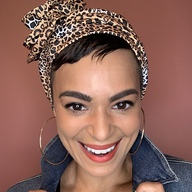Table of Contents
Get started with MyPerfectResume today!
- Build a resume on any device
- Pick an ATS-friendly template
- Tailor with AI copy suggestions
Why this resume works
- Quantifies accomplishments: The applicant’s measurable accomplishments, such as managing over 15 high-profile events yearly and increasing attendee engagement by 25%, clearly showcase their impact on event success.
- Illustrates problem-solving ability: Implementing innovative solutions like optimizing vendor contracts to save $10k and improving event promotion highlights the applicant’s strong problem-solving skills and initiative.
- Highlights industry-specific skills: Skills in logistics coordination and budget optimization for over 30 events demonstrate the applicant’s deep industry-specific expertise, essential for thriving in event management roles.
More Event Specialist Resume Examples
Explore more event specialist resume examples to learn how to showcase your planning skills, coordination experience, and creative approach. These event planning resume samples will help you build a resume that stands out to event management employers.
Entry-Level Event Specialist
Why this resume works
- Centers on academic background: The applicant’s education section highlights degrees in event and hospitality management, creating a strong foundation for a career focused on planning and coordination success.
- Effective use of keywords: Strategic inclusion of role-specific terms like “vendor negotiation” and “budget management” aligns with keywords to optimize the resume for ATS screening.
- Shows digital literacy: Use of tools such as budget tracking platforms and event marketing systems reflects advanced computer skills, ensuring readiness for tech-driven project environments.
Mid-Level Event Specialist
Why this resume works
- Includes a mix of soft and hard skills: The applicant balances technical skills like budget management with interpersonal skills, evident in boosting client satisfaction and reducing costs across diverse event settings.
- Demonstrates language abilities: Language skills in Spanish, French, and German indicate the applicant’s ability for international collaborations, supporting effective cross-cultural communication in global events.
- Displays technical expertise: Holding certifications such as Certified Meeting Professional highlights the applicant’s commitment to maintaining high standards and developing specialized expertise in event management roles.
Experienced Event Specialist
Why this resume works
- Lists relevant certifications: Including certifications such as Certified Meeting Professional and Event Management Certificate reinforces expertise in event planning while showcasing a commitment to professional growth.
- Emphasizes leadership skills: Successfully leading teams of up to 10 associates while improving client satisfaction highlights strong leadership skills and the ability to motivate others effectively.
- Sections are well-organized: Clear headers and concise bullet points make the resume easy to scan, ensuring key accomplishments like boosting client retention and cost savings are immediately noticeable to readers.
Event Specialist Resume Template (Text Version)
Sophia Brown
San Diego, CA 92106
(555)555-5555
Sophia.Brown@example.com
Professional Summary
Dynamic Event Specialist with six years in strategic event planning. Excels in budget optimization and boosting client satisfaction. Proven leader in managing high-profile events with innovative solutions.
Work History
Event Specialist
Celebration Pro – San Diego, CA
January 2024 – July 2025
- Managed 15+ high-profile events yearly
- Increased attendee engagement by 25%
- Successfully reduced event costs by 30%
Event Coordinator
Festival Dynamics – San Francisco, CA
August 2021 – December 2023
- Coordinated logistics for 30+ events
- Boosted client satisfaction by 40%
- Optimized vendor contracts saving k
Event Planner
Harmony Events Group – Lakeside, CA
July 2019 – July 2021
- Designed innovative event concepts
- Monitored budget compliance by 15%
- Enhanced event promotion boosting attendance
Languages
- Spanish – Beginner (A1)
- French – Beginner (A1)
- Italian – Beginner (A1)
Skills
- Event Management
- Budget Optimization
- Client Engagement
- Vendor Relations
- Logistics Coordination
- Event Promotion
- Creative Problem Solving
- Networking Expertise
Certifications
- Certified Event Planner – International Event Specialists
- Advanced Event Management – Event Professionals Institute
Education
Master’s Degree Event Management
New York University New York, NY
May 2019
Bachelor’s Degree Business Administration
University of California, Los Angeles Los Angeles, CA
May 2017
Related Resume Guides
Advice for Writing Your Event Specialist Resume
Explore tips on how to write a resume for an event specialist role and learn how to highlight your planning skills, creativity, and ability to pull off unforgettable events.
Showcase your portfolio or projects
For an event specialist, including a portfolio link or projects on your resume helps highlight your creativity and skills in planning and managing events. A well-crafted portfolio lets you showcase your past work and gives potential employers a direct look at what you’re capable of.
When building the project section of your resume, you don’t have to limit yourself to traditional job experience. Include a variety of projects, such as freelance gigs, academic work, volunteer efforts, or even personal passion projects. These all help illustrate your versatility and initiative.
Each project entry should follow a structure similar to your work experience section. Start with the project title and name the client or organization if applicable. Provide a brief summary of the project’s goals, then focus on your specific role, the skills you applied, and the results you achieved.
By organizing your projects this way, you help employers quickly grasp the scope and impact of your experience as an event specialist. It not only highlights your past work—it also shows that you’re resourceful, adaptable, and ready to take on new challenges with creativity and confidence.
Example of a projects section
Annual Charity Gala
Hope Foundation
March 2023
- Coordinated logistics and vendor management, ensuring seamless event execution for 500 attendees.
- Developed a sponsorship package that secured $50,000 in funding from local businesses.
- Implemented a social media campaign that increased event awareness by 60%.
Tech Conference Expo
Innovate Tech Forum
September 2022
- Managed exhibitor communications and booth assignments for over 100 tech companies.
- Orchestrated keynote sessions with industry leaders, attracting over 2000 participants.
- Facilitated virtual networking events, enabling connections between global attendees.
Jumpstart your resume writing by exploring our professional resume examples. They help you see what works for different jobs to make your resume stronger.
Emphasize your most relevant skills
As an event specialist, balancing technical and soft skills is key to excelling in creative roles. Showcasing your ability to use event planning tools, manage budgets, and create timelines highlights your technical strengths. At the same time, emphasize soft skills like communication, adaptability, and problem-solving to demonstrate how you bring ideas to life while working with teams or clients.
Together, these skills paint a clear picture of your capability to handle both the logistical and interpersonal aspects of event coordination. Include a skills section on your resume that lists specific tools or software you’re familiar with, such as project management platforms or graphic design programs used for creating event materials. Also mention artistic abilities like designing themes or crafting unique experiences.
Integrate these skills into your work history by highlighting how you used them in past events. For instance, describe how you leveraged scheduling software to streamline vendor communication or applied creativity to transform client visions into memorable events.
By weaving these details throughout your resume and pairing them with measurable results, you’ll show employers not just what you can do but also how you’ve successfully delivered in similar roles. This approach makes your application stand out as both skilled and well-rounded.
When selecting a resume format as an event specialist, highlight your organizational skills, creativity, and past successful events to showcase your expertise in planning and execution.
Choose a professional resume template
Choosing a professional resume template is important for an event specialist. Look for a template with a clean, well-structured layout. Look for clear sections dedicated to your contact information, summary, work experience, skills, and education. Steer clear of overly decorative designs. Complex graphics or bold colors can distract from your content rather than enhance it.
A streamlined, organized template creates a strong visual hierarchy, making it easier for hiring managers to quickly scan your achievements. Prioritize layouts that use simple, professional fonts and generous white space to keep everything easy to read.
This not only gives your resume a polished look but also improves its compatibility with applicant tracking systems (ATS). ATS-friendly templates avoid intricate formatting and visuals that could prevent your resume from being properly parsed.
As an event specialist, your creativity is important, but it’s best demonstrated through your accomplishments, not flashy design elements. By keeping your resume layout clean and professional, you ensure that potential employers stay focused on your ability to plan, coordinate, and deliver standout events.
Want to impress as an event specialist? Use our AI Resume Builder to create a professional resume quickly and easily!
Format your resume properly
Properly formatting your resume makes your information clear and easy to read. For an event specialist, the resume format you select should reflect your experience level. If you’re seasoned, a chronological resume can effectively showcase your career path, whereas if you’re starting, a functional resume might be better for highlighting your skills and potential in event planning rather than job history.
5 resume formatting tips
- Choose a consistent font: Opt for fonts like Arial or Calibri in 10-12 pt size for clarity.
- Use clear section headings: Structure with bold headings like “work experience” and “skills” for easy reading.
- Use bullet points: Highlight skills and roles with bullet points for quick scanning.
- Aim for one-page resume: Keep it to one page unless you have extensive work history or achievements.
- Ensure proper spacing: Keep consistent margins and spacing to maintain a clean, professional appearance.
Boost your resume’s chances of passing applicant tracking systems with our ATS Resume Checker, which spots issues and offers suggestions to improve your resume.
FAQ
Do I need to include a cover letter with my event specialist resume?
Yes, including a thoughtful cover letter with your event specialist resume can make a strong impression on potential employers. Check out these cover letter examples for inspiration.
A cover letter gives you the chance to highlight your passion for planning and executing memorable events while showcasing how your skills align with the specific needs of the role.
For instance, if the company specializes in corporate events or weddings, you can emphasize your experience coordinating similar types of events and how it has prepared you to excel in this position.
You might also use the space to discuss any notable achievements, like exceeding attendance goals or managing budgets efficiently, that may not be fully detailed on your resume.
Tailoring your event specialist cover letter to reflect the company’s brand or mission shows genuine interest and sets you apart from applicants who submit only a generic resume.
You can use our Cover Letter Generator to create a customized cover letter with personalized content suggestions.
How long should an event specialist’s resume be?
For an event specialist, aim for a concise one-page resume to highlight your core skills like event planning, vendor management, and budget oversight. This keeps the focus on your most relevant experience and makes it easy for employers to see your qualifications at a glance.
If you have extensive experience or specialized certifications, extending to a two-page resume can be appropriate. Just ensure every detail is directly related to event coordination and showcases significant achievements or responsibilities that set you apart.
To fine-tune the length of your resume based on your career stage, explore our guide on how long a resume should be for valuable tips and examples.
How do you write an event specialist resume with no experience?
If you’re just beginning as an event specialist without experience, focus on showcasing transferable skills, education, and activities that show your planning and organizing abilities. Here are a few tips on writing a resume with no experience:
- Highlight relevant coursework or training: If you’ve studied subjects like event planning, marketing, or hospitality in school, list those prominently. Include any certifications related to events or customer service.
- Leverage volunteer work and personal projects: Mention times you helped organize a fundraiser, community event, or even school functions. Describe what you did, whether it was coordinating logistics, managing schedules, or handling vendors.
- Focus on transferable skills: Skills like communication, problem-solving, time management, and teamwork are important for this role. Provide examples of how you’ve demonstrated these abilities in other contexts (e.g., part-time jobs or extracurricular activities).
- Use a strong summary statement: Write a brief opening that highlights your enthusiasm for event planning and your ability to step into the role with creativity and organizational talent.
Tailor your resume to the job description by using keywords from the posting and showcasing how your background aligns with their needs.
Rate this article
Event Specialist
Share this page
Additional Resources

Event Specialist Cover Letter Example + Tips
Event specialists plan, organize, and oversee weddings, funerals, graduations, conferences, business meetings, retreats, concerts, and banquets. Their responsibilities include:Discussing the event with their clients Booking venues Researching vendors Negotiating prices Managing budgets Solving problems
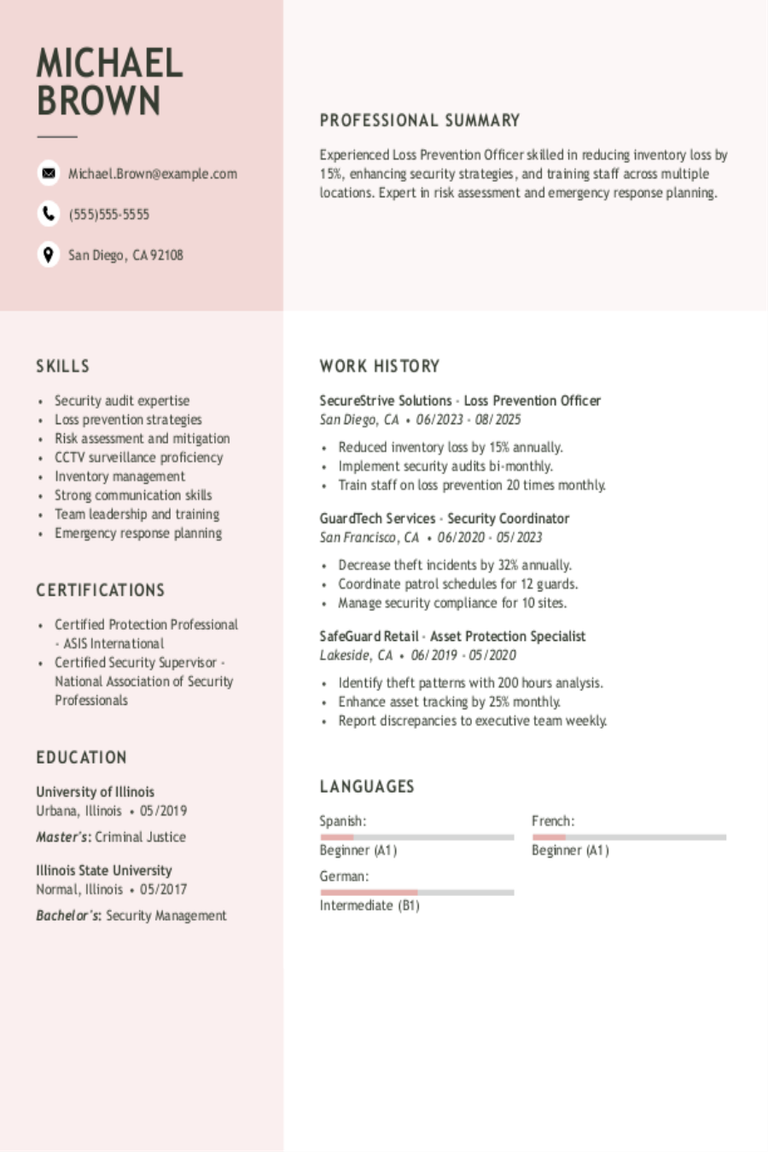
Loss Prevention Officer Resume Examples & Templates
Discover how loss prevention officers can showcase their ability to reduce theft and maintain safety. These resume examples and tips help you highlight your keen observation skills and experience in
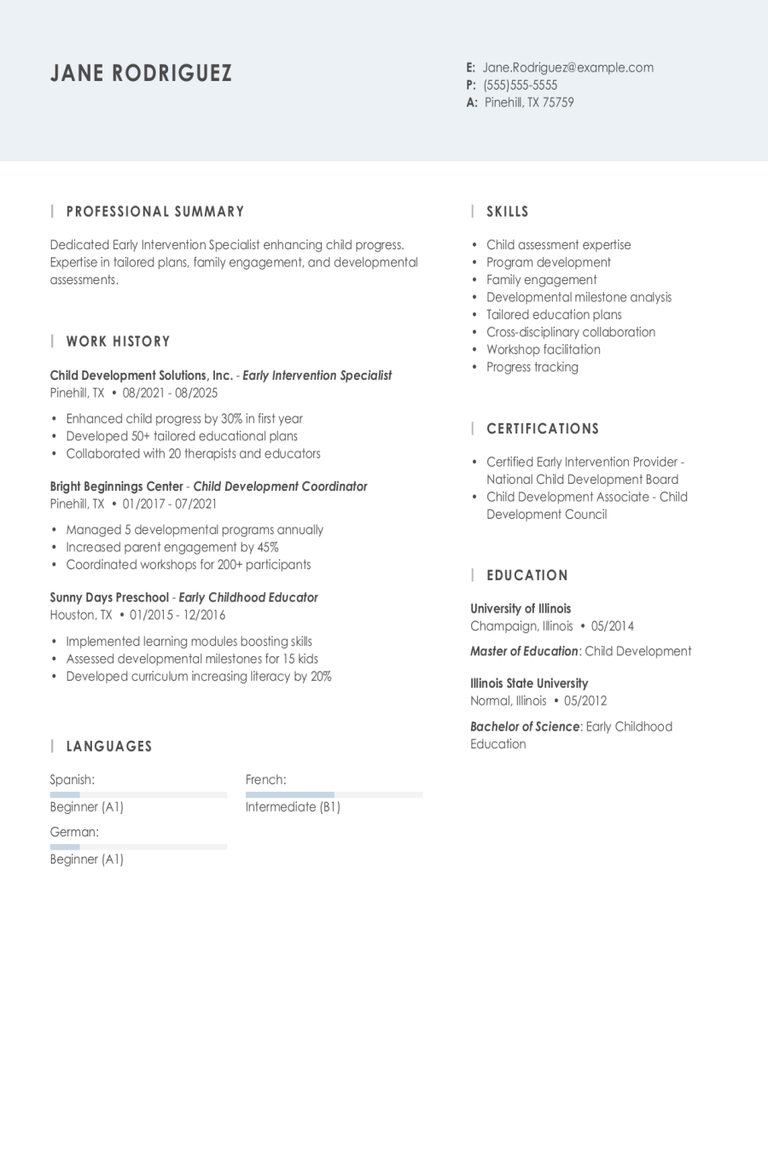
Early Intervention Specialist Resume Examples & Templates
Discover early intervention specialist resume examples and tips that will help you highlight your skills in child development, communication, and teamwork to make your experience stand out.Build my resumeImport existing
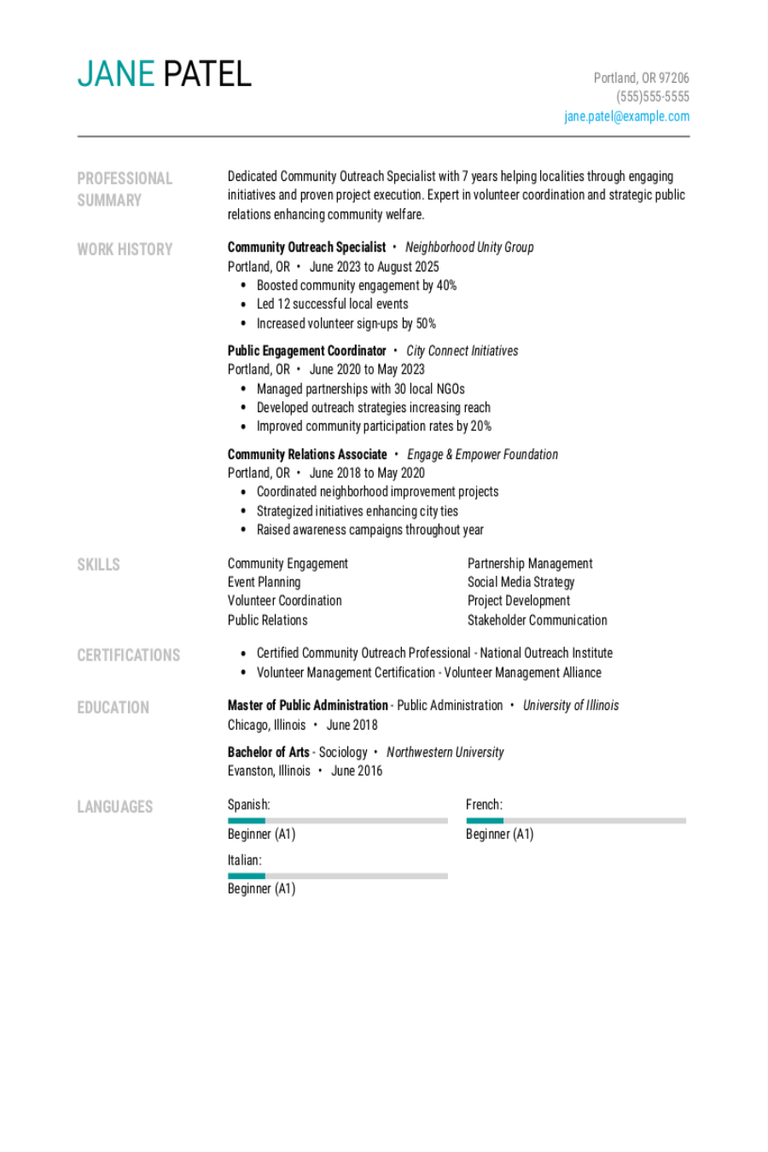
Community Outreach Specialist Resume Examples & Templates
Browse community outreach specialist resume examples and learn how to show you connect with people, plan events, and support your community.Build my resumeImport existing resumeCustomize this templateWhy this resume worksQuantifies
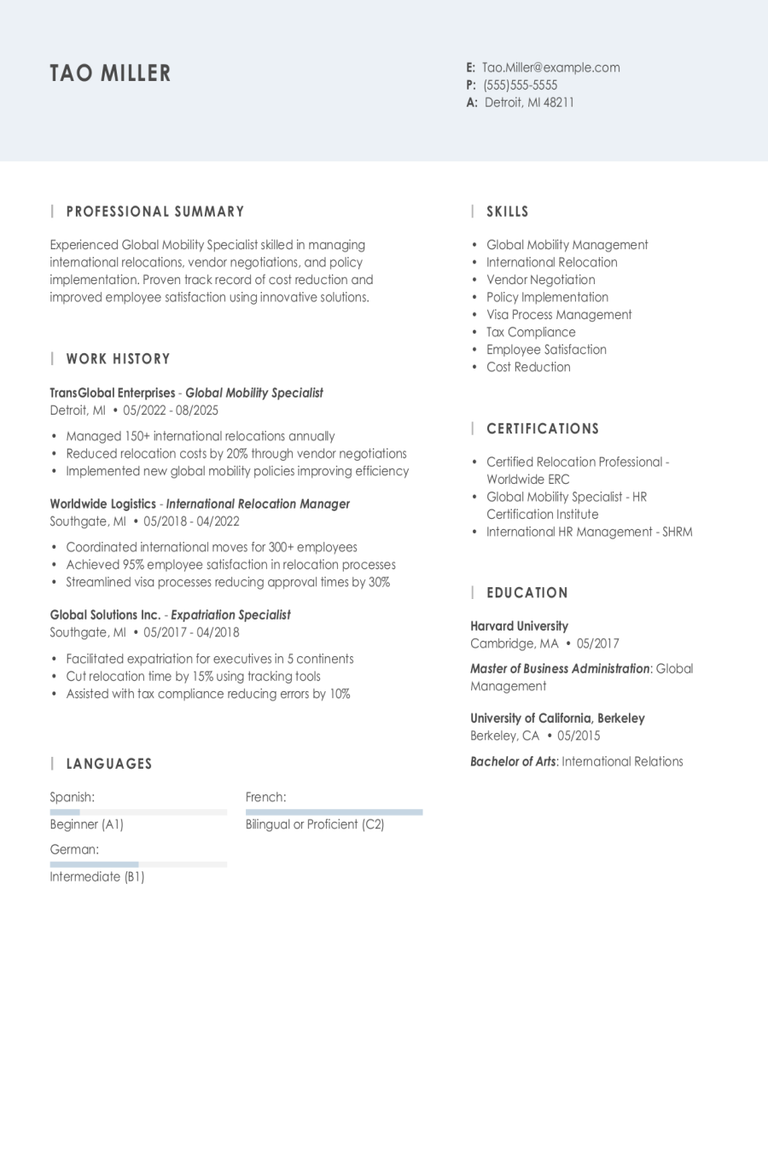
Global Mobility Specialist Resume Examples & Templates
Explore global mobility specialist resume examples to see how to showcase your skills in coordinating international assignments and managing employee relocations. Browse tips to help you highlight your expertise in
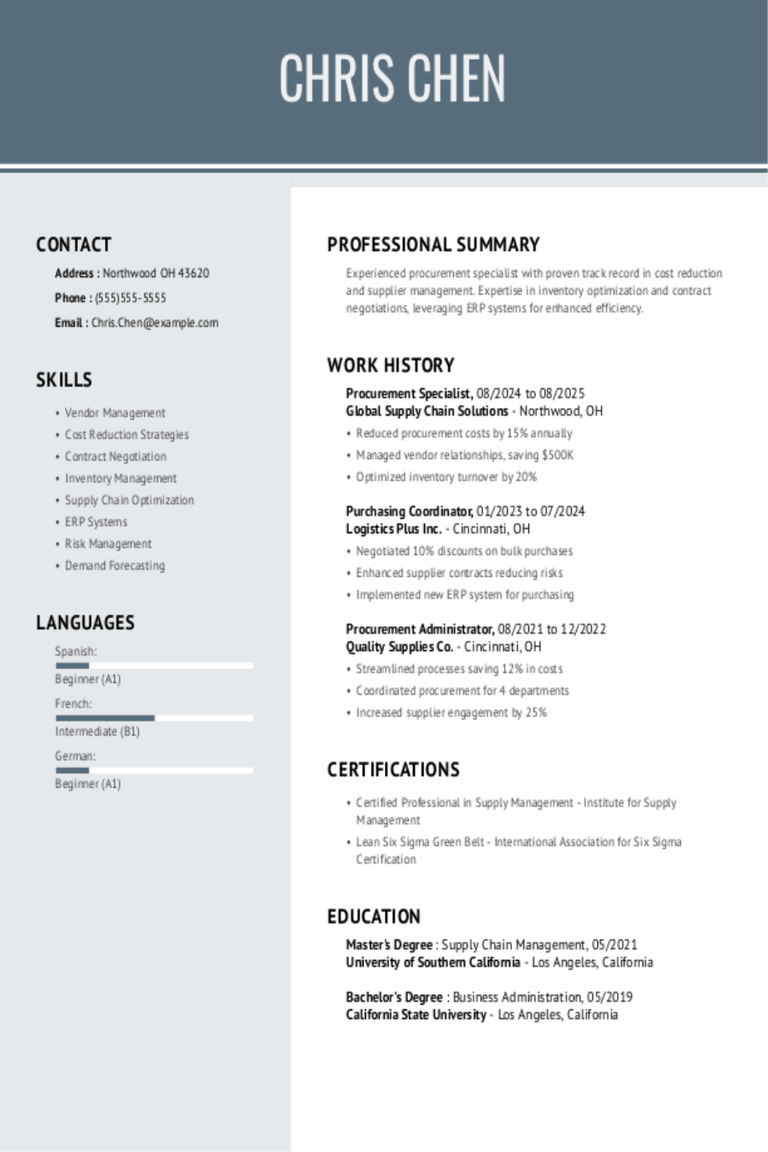
Procurement Specialist Resume Examples & Templates
Browse procurement specialist resume examples that showcase experience handling purchasing, managing vendor relationships, and negotiating contracts. These examples and tips will help you highlight your ability to secure the best
